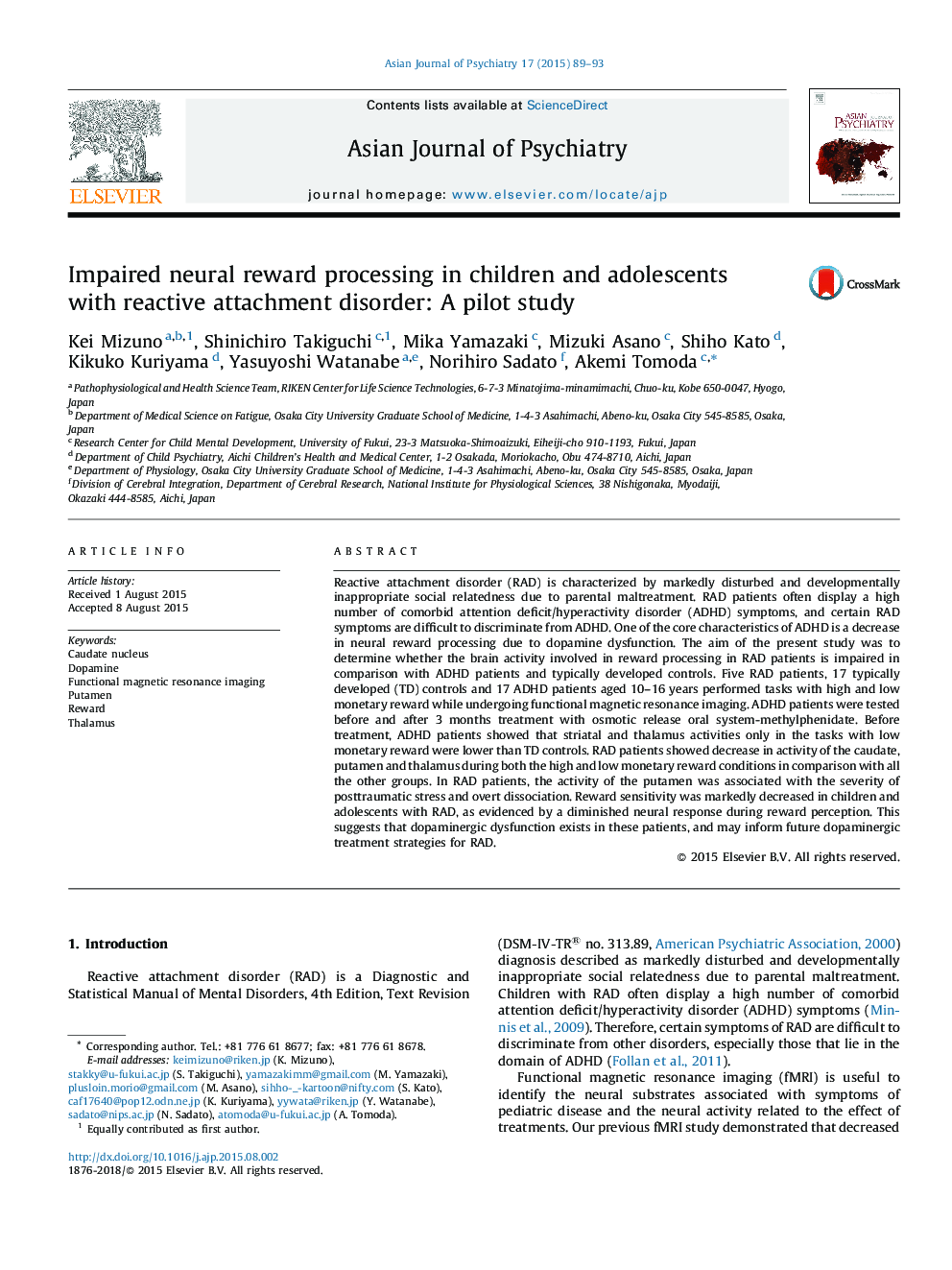| Article ID | Journal | Published Year | Pages | File Type |
|---|---|---|---|---|
| 316980 | Asian Journal of Psychiatry | 2015 | 5 Pages |
•Reactive attachment disorder (RAD) has low reward sensitivity.•Activity in striatum and thalamus of RAD patients was decreased in monetary reward.•Neural reward sensitivity is markedly decreased in RAD.•This may inform future dopaminergic treatment strategies for RAD.
Reactive attachment disorder (RAD) is characterized by markedly disturbed and developmentally inappropriate social relatedness due to parental maltreatment. RAD patients often display a high number of comorbid attention deficit/hyperactivity disorder (ADHD) symptoms, and certain RAD symptoms are difficult to discriminate from ADHD. One of the core characteristics of ADHD is a decrease in neural reward processing due to dopamine dysfunction. The aim of the present study was to determine whether the brain activity involved in reward processing in RAD patients is impaired in comparison with ADHD patients and typically developed controls. Five RAD patients, 17 typically developed (TD) controls and 17 ADHD patients aged 10–16 years performed tasks with high and low monetary reward while undergoing functional magnetic resonance imaging. ADHD patients were tested before and after 3 months treatment with osmotic release oral system-methylphenidate. Before treatment, ADHD patients showed that striatal and thalamus activities only in the tasks with low monetary reward were lower than TD controls. RAD patients showed decrease in activity of the caudate, putamen and thalamus during both the high and low monetary reward conditions in comparison with all the other groups. In RAD patients, the activity of the putamen was associated with the severity of posttraumatic stress and overt dissociation. Reward sensitivity was markedly decreased in children and adolescents with RAD, as evidenced by a diminished neural response during reward perception. This suggests that dopaminergic dysfunction exists in these patients, and may inform future dopaminergic treatment strategies for RAD.
